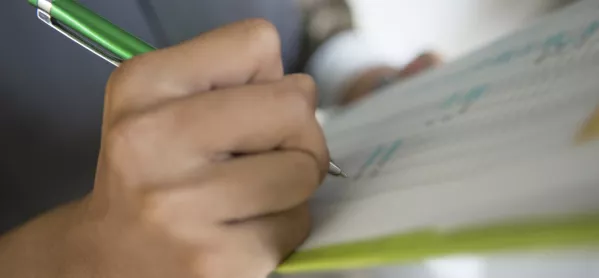- Home
- ‘We have a working replacement for Ofsted, so why don’t we use it?’
‘We have a working replacement for Ofsted, so why don’t we use it?’

There is something about an Ofsted inspection that puts the worst kind of fear into even the best of schools. The power wielded by the inspectors, based on just a snapshot of time is frightening. There is little right to reply and their outcomes seem so final.
In my 10 years as a headteacher, I have survived four Ofsteds and numerous visits from HMI. In my experience, the inspection process is fairer and more discussion-led than it used to be. But that doesn’t mean it is the best way to drive school improvement.
I believe that peer review, a model by which teachers evaluate one another’s practice, offers a real alternative to inspection that can result in more valuable outcomes, while creating far less stress for teachers and school leaders.
We conduct our peer reviews through a local teaching school alliance (probably what the DfE would prefer) but the process could easily be conducted through MATs, or other collaborations.
This is an outline of the review process we follow:
- Every school or strategic partner within our alliance (currently around 35 schools) is part of a two-year cycle of review.
- Schools are reviewed from teams that are not in their direct cluster and each team consists of a lead reviewer and at least one other reviewer.
- Before a school is reviewed, the focus is agreed by the school’s headteacher and the lead reviewer. This is usually a current weakness or school development area.
- Observation proformas, a code of conduct and timescales have been drawn up by the heads of schools in the alliance.
- Lead reviewers have all undergone peer review training for the role by a HMI or an Ofsted inspector, or have closely shadowed another lead reviewer previously. All lead reviewers are practicing headteachers and all have a Ofsted rating of ‘good’ or ‘outstanding’ for leadership and management.
- The review team goes into a school after reading the RAISEonline data, self-evaluation form and school development plan. They conduct the review and then feedback to the head and staff.
- A written report follows. All judgements are from the current Ofsted framework. Support from within the alliance is discussed for areas of weakness that have been identified.
At the moment, this system is clearly in its infancy, and it runs alongside an inspection system. If it were to completely replace Ofsted, it would need some tweaking, but I certainly think that is possible.
‘Peer review is the way forward’
Don’t get me wrong - I am not suggesting the removal of any monitoring system for schools. Ofsted could still serve to validate peer review judgements through random checks and to monitor parent view responses and data as they do now. They would also need to continue to provide a framework for peer reviews to work within. Think about how self-scan checkouts work; they can be used independently, but there is always someone there to check your ID for that bottle of wine.
But to me, peer review does seem like a logical way forward. We hear a lot about local solutions and system-led leadership these days. Well, this is a perfect example of both. Staff members are much more confident going into a review by their peers and the two-year cycle alleviates the stress of waiting for that dreaded phone call.
All schools are reviewed regularly and the cost is minimal, as it is a reciprocal procedure, with heads giving up their time to review one another. Everyone involved has a vested interest in getting it right for the pupils, because, whether we work in a MAT or other collaboration, we own the data collectively. There is also the added bonus of being able to provide immediate support for any issues identified. At the moment, Ofsted identify weaknesses and then leave schools to solve them alone.
There are of course pitfalls within any system. If reviews were done by very familiar or close colleagues then the process could lack focus or become too cosy. Reviewers must stick to protocol and confidentiality must be observed. Schools at the moment don’t choose to publish their reports as they would an Ofsted report, but as I said, it is early days. In areas where there is still a thriving local authority, the role of the LA within this system also needs negotiating.
But, it appears that the path forwards for all schools now lies in building futures together as collaborations, rather than as individual schools. This feels like an elegant solution to monitoring within an alliance, in line with the current view that the whole is greater than the sum of its parts.
In this climate of tighter budgets, poor morale in schools and unrealistic workload, we should surely be looking for an objective and robust system that supports school improvement, but is not as stress-laden and artificial as the current one. Peer review is exactly that.
Christina Zanelli Tyler is headteacher at West Cliff Primary School in Whitby
Keep reading for just £1 per month
You've reached your limit of free articles this month. Subscribe for £1 per month for three months and get:
- Unlimited access to all Tes magazine content
- Exclusive subscriber-only stories
- Award-winning email newsletters



